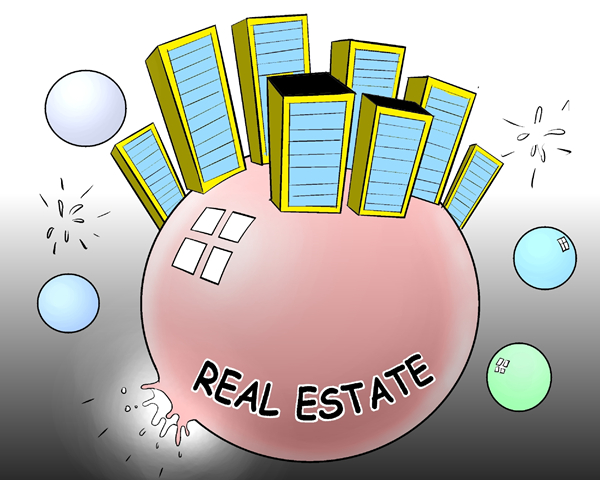Putting house prices in order
- By Yi Xianrong
 0 Comment(s)
0 Comment(s) Print
Print E-mail China Daily, May 12, 2014
E-mail China Daily, May 12, 2014
|
Time to burst [By Jiao Haiyang/China.org.cn] |
Moreover, the explosive growth of Internet finance since 2003 and "shadow banking" have to some extent changed the direction of the flow of funds in the domestic financial market. The outflow of a large amount of deposits from China's normal financial system has not only reduced available funds that banks use for lending, but also has pushed up lending prices. That domestic banks are charging higher interest rates while the scale of lending is decreasing is a contradiction of sorts, and it will affect housing credit demands.
The depreciation of the yuan against the US dollar over the past few months, too, has dampened the prospects of yuan-denominated assets such as real estate, and deterred investors and speculators from buying new property or prompted them to sell property they had bought earlier.
It is likely that the fear of a collapse in the supply of their funds will force some developers to lower housing prices in order to get faster returns on their investment, which will play an important role in influencing housing prices.
After a decade of rising prices, China's housing market is bound to lose its upward momentum. Bailout policies by local governments to prevent housing prices from falling, therefore, are unlikely to yield expected results. Instead, they could aggravate investors' concerns over risks and thus accelerate their flight from the housing market.
The author is a columnist with China.org.cn. For more information please visit: http://china.org.cn/opinion/yixianrong.htm







Go to Forum >>0 Comment(s)